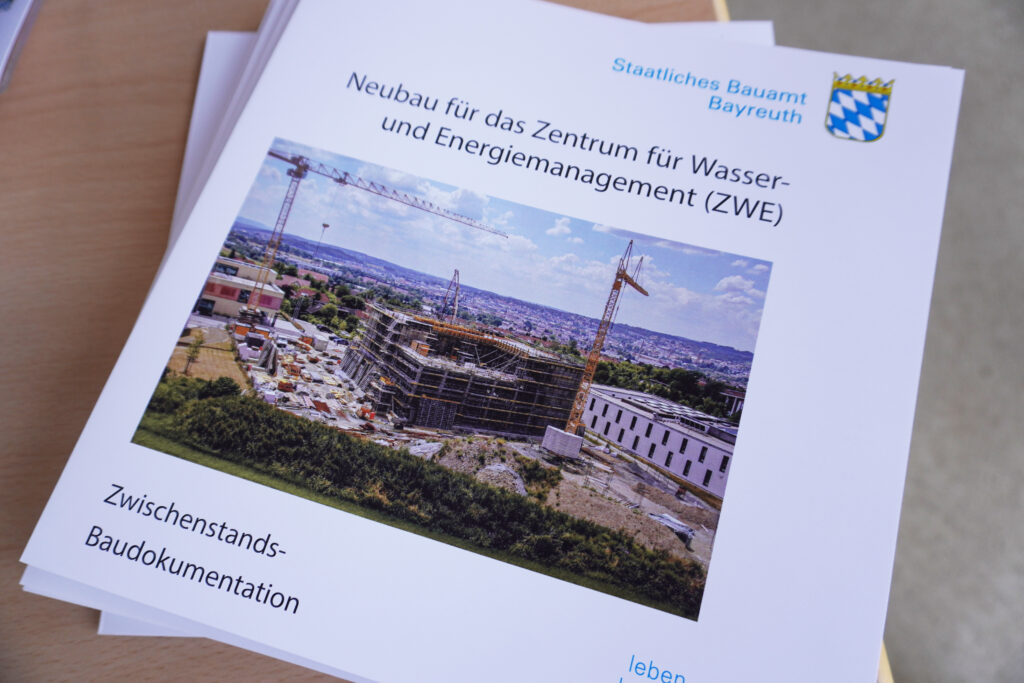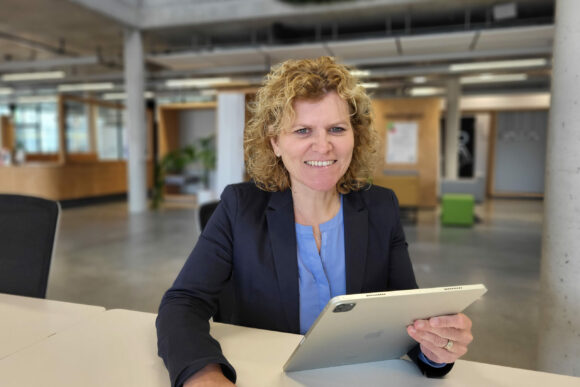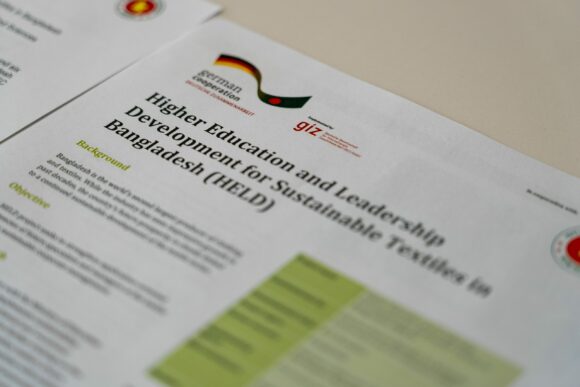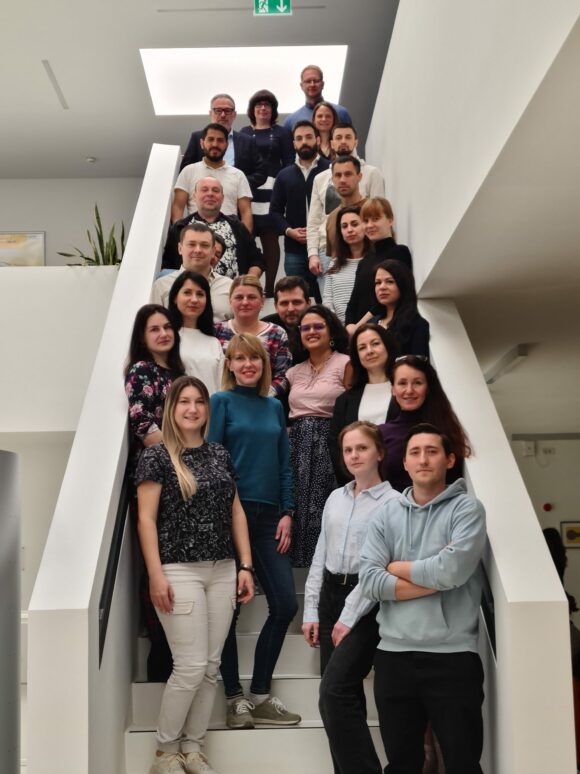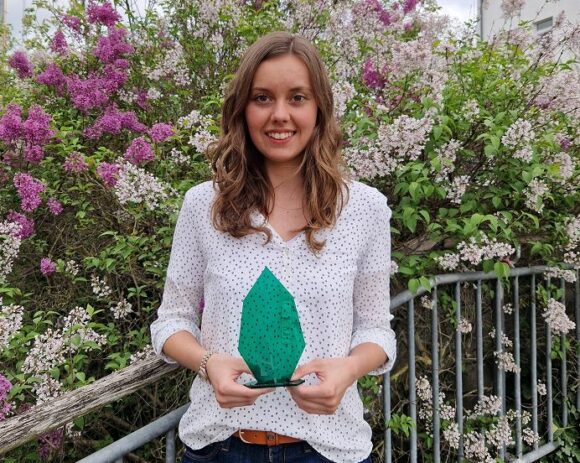Everyone is talking about the shortage of gas and the rapidly rising energy prices. A lot of emotion is mixed in with rapidly changing facts in the public discussion. But how does one assess the current situation at Hof University of Applied Sciences and what measures are being taken here? Campuls-digital” talked about this with Prof. Dr. Tobias Plessing and Dr. Andy Gradel from the Institute for Water and Energy Management (iwe) as well as Josef Martin and Peter Kemnitzer from the university administration.
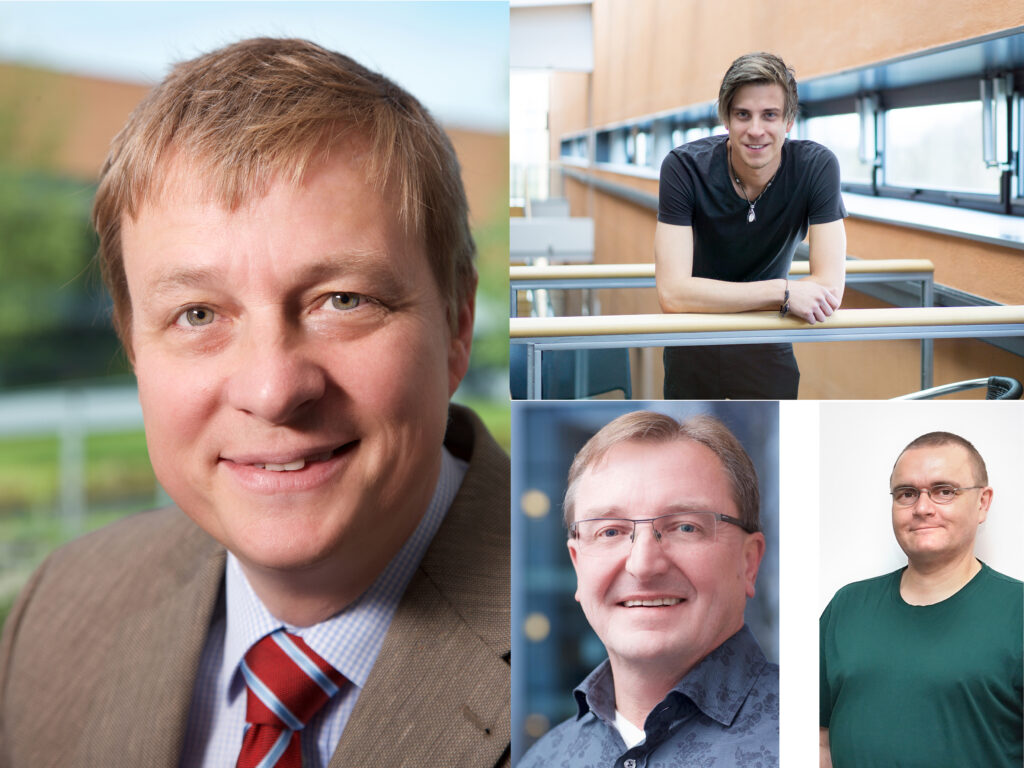
Gentlemen, what do you think: Will private homes remain cold in the upcoming winter or will the economy have to curb production – how serious is the situation?
Prof. Dr. Tobias Plessing: “I think that for purely economic reasons, many people will have to cut back. That means that in private homes certain, little-used, rooms or bedrooms will probably not be heated. In terms of energy efficiency, this is definitely a good impulse. Certain branches of industry will certainly take measures to ensure that the high energy costs do not cause an economic imbalance. A cutback in production is only to be expected, if at all, in the steel, glass or ceramics industries. For these energy-intensive industries, however, a government aid program would then certainly take effect or be launched.”
Dr. Andy Gradel: “If a large part of the population and industry pays attention to a reasonable level of conservation, then I don’t think these massive cuts will occur. And from my point of view, it can be assumed that many are saving – whether for ideological or concrete financial reasons.”
Josef Martin: “Cold is relative, of course. That someone has to turn off the heating completely will probably be rare, but if gas prices continue to rise by high factors, many will not be able to avoid a noticeable “throttling”. Those who have alternative heating options will use them. In the urban area with multiple dwellings it is naturally difficult from the infrastructure however to adjust a furnace or to store fuel supplies “
There we are already with the question about the alternatives: What can be compensated for by alternative energy sources?
Prof. Dr. Tobias Plessing: “Renewable energies cannot compensate for the loss of Russian gas supplies in such the short term. However, we have already achieved almost a 50 percent share of green electricity in the electricity market and are on the right track here. We can only hope that this winter the wind will blow strongly and the sun will shine often!”
Dr. Andy Gradel: “Frankly, it is almost impossible to compensate in the necessary time frame. New plants do not stand in two months, certainly not according to German licensing law. Prolonged electricity production from coal and nuclear, however, can at least save gas with the help of electric heaters if there is a real shortage.”
Josef Martin: “That’s the way it is: central supply via district heating – e.g., from wood chips or, as in France, via “small reactors” that supply process heat to industry – require a longer lead time due to approval, construction and pipe network, or are not even wanted in Germany. I assume that it will take at least a decade to develop alternative energies to a level that can provide this. A contribution to the solution could be the overproduction: Storage technologies are needed for it. Some of these storage technologies are under development, some would be ready for application and could be introduced.”
So where are the problems?
Josef Martin: “I think sometimes we get in our own way: there are pumped storage plants, for example, which prefer to sell the excess production to neighboring countries because they were smart enough not to introduce transmission fees. This leads to the abstruse situation that Germany, in turn, has to buy expensive power from abroad when there are gaps in its own supply. Another practical example: If you have photovoltaic systems of a certain size installed with approved and tested components by a registered specialist company, you have also needed certification for about 4 years – pure bureaucracy in my view. If a photovoltaic system has its subsidy period behind it, it is usually torn down, even though it still has almost 100% power and would easily last twice as long. This is because an electricity price is paid that is not worthwhile for the operator in order to pay for the land lease, taxes, etc. But what happens to tons of electrical scrap, scrap metal and reinforced concrete that were produced using energy? They end up in the landfill. Can we afford something like that?”
Politicians are, of course, looking for timely solutions: How can gas from Russia be replaced in the medium and long term?
Prof. Dr. Tobias Plessing: “Replacing Russian gas with liquefied gas imports is, in my view, only a short-term (bridging) measure. In Germany, we need to move away from fossil fuels in the long term and, above all, quickly, and switch to gas from biomass and hydrogen.”
Dr. Andy Gradel: “I can underline that. One option is certainly short-term liquefied gas imports and alternative suppliers such as Norway. In the longer term, domestic expansion of biogas and biomass gasification plants can also help. Electrolysis hydrogen could also be a solution here and there, although that is actually too valuable to burn. Import hydrogen via ammonia or LOHC – liquid organic hydrogen carriers – should also be considered.”
Josef Martin: “One can replace in the short and medium term with liquefied natural gas or possibly coal, partly with gas from pipelines from other countries. In the long term, it would be conceivable to build a pipeline from Spain to Central Europe. After all, Spain and Portugal have transcontinental pipelines from oil and gas areas in North Africa and the Middle East. But in the long term, renewable energy is the big issue.”
The university president made it clear, after all: There will be no return to online teaching in the winter semester for energy reasons. But how will Hof University of Applied Sciences then adapt to the situation in concrete terms?
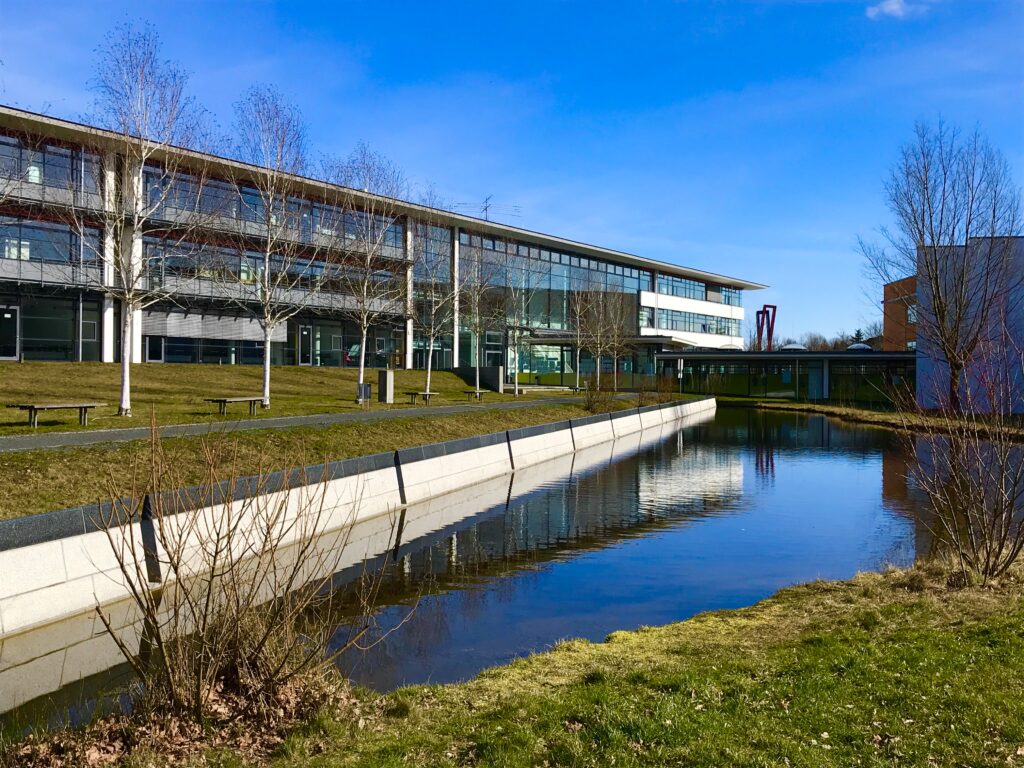
Prof. Dr. Tobias Plessing: “In a working group consisting of employees from research and administration, concrete ideas and approaches are being developed as to how every member of the university can make a contribution. In addition, we are pursuing the long-term goal of making the university energy self-sufficient!”
Peter Kemnitzer: “On the part of the building management, we are in constant contact with our “supplier” – the Bavarian University of Public Service (HfÖD). The supply of heat to the university is assured for this winter, as heating oil is available in addition to natural gas as the primary energy source. Here, the tank has been filled until the fall. However, this good starting situation does not absolve us from using all the possibilities we have for saving energy. As already explained by Prof. Plessing, a working group on energy has been formed in consultation with the President, and is working intensively on the subject. This is not only about short-term measures to save energy, but also generally about the future medium-term energy supply of the entire university. In this context, significantly more importance is to be attached to the university’s own energy generation. Our research institute iwe will play a prominent role in this.”
What importance does the topic of energy saving currently have at our institution?
Prof. Dr. Tobias Plessing: “So far, the topic has not had the highest priority at the university. But there are already numerous ideas and approaches that we can build on. And the current situation we are all facing will trigger some new things and set them in motion!”
Peter Kemnitzer: “Due to various conditions at the university, we can currently only have a limited influence on the topic of energy saving from my point of view. Due to our 24h opening, we cannot, for example, shut everything down on Friday afternoon and start everything up again on Monday morning. The university still has moderate consumption even when temperatures are lowered. The necessary adaptation of the control and regulation technology to the new situation not only costs money, but also takes time for planning and execution.”
Dr. Andy Gradel: “I think many sensible measures have been initiated. But the Institute for Water and Energy Management could certainly design an energy concept for the entire university.”
In general, does anyone have to worry about having to study, teach and work in cold rooms during the winter semester?
Prof. Dr. Tobias Plessing: “In my opinion, no one has to worry about having to study or work freezing in the winter semester, because – as already mentioned above – we can also rely on heating oil in the university’s heating system.”
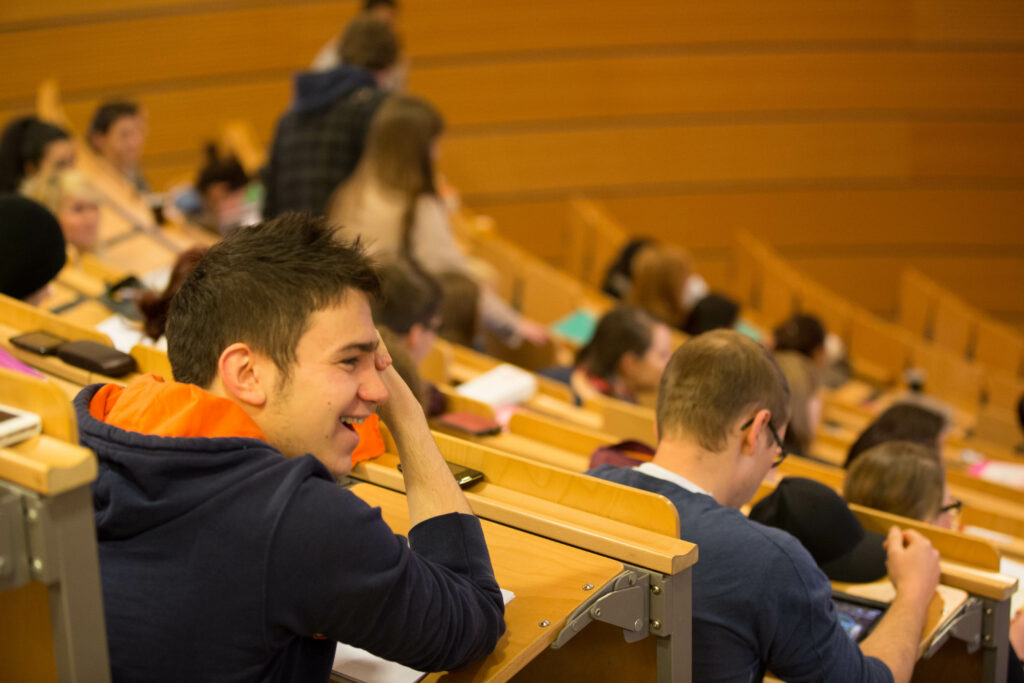
Josef Martin: “In the current situation, nothing can be ruled out one hundred percent: the gas suppliers themselves currently confirm that they are completely unclear about what we are facing. But we remain optimistic and do not want to assume such a case.”
In this context, how do you see the ongoing research at iwe?
Prof. Dr. Tobias Plessing: “For years, our research in the field of energy at the iwe has been oriented toward the topics of energy efficiency and the conversion of a fossil energy economy to renewable energy sources. The new institute building, whose topping-out ceremony we celebrated in July, will give us many more opportunities to advance the university on this topic.”
Dr. Andy Gradel: “In addition to developing application-oriented technologies, we at the iwe are also strongly committed to accelerating the energy turnaround with a high public profile, e.g. in local heating.
The new Center for Water and Energy Management (ZWE), which is currently under construction, will be a research lighthouse with regard to the self-sufficient supply of our own building and operations. The planning of the facility has been largely completed – at present, work is already underway on the energy control system as part of a doctorate. Autarkic heat concepts with large-scale heat storage are focal points at the iwe. We are also working on the aforementioned topics such as biomass gasification for self-generation of heating and process gas as well as electricity from biomass and various biohydrogen technologies.”
